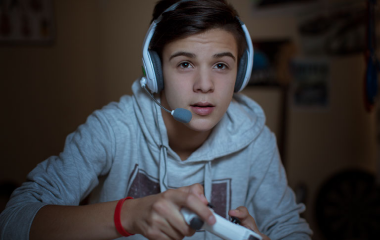Every school night, millions of teens armed with controllers and headsets clash on the virtual battlefield of “Call of Duty.” You would think these adrenaline-fueled gaming sessions would keep teen males wired all night. As it turns out, getting to sleep following an evening of gunfire, explosions and kill counts isn’t much different than it would be after watching nature documentaries.
A new study published in the Journal of Clinical Sleep Medicine concluded video games only have a mild effect on the sleep of older teen males.
Researchers in Australia looked at how long it took a group of male teens to fall asleep after they played the best-selling Playstation 3 video game “Call of Duty 4: Modern Warfare,” in comparison to the Academy Award winning documentary “March of the Penguins.”
The difference was only 4.5 minutes.
A group of 18 teens, all about 16 years old, were subject to two 50-minute experimental sessions. Each time they under the covers in bed, in a dimmed room, with electrodes attached.
It took teens 7.5 minutes to fall asleep after playing the violent video game. When they watched “March of the Penguins” the average was three minutes. About a third of the boys fell asleep during the documentary. Seven teens say they felt less sleepy after they played “Call of Duty.” Two of the teens actually fell asleep faster.
Scientists measured only a small increase in the subjects’ alertness, but no differences in their arousal or quality of sleep.
The findings counter the popular, but mostly anecdotal, belief that it’s hard to sleep after playing video games at night.
But that doesn’t necessarily mean gaming has no effect on sleep. The slight difference in teens’ sleepiness might be enough to keep them playing longer. And many game sessions last a lot longer than an hour.
In extreme cases gaming benders have lasted for days. Just this week in South Korea, the Culture Ministry announced plans to stop minors from playing online games after midnight.
Past research has linked excessive video game playing to loss of sleep. College students addicted to video games sleep about one hour less than their peers.




